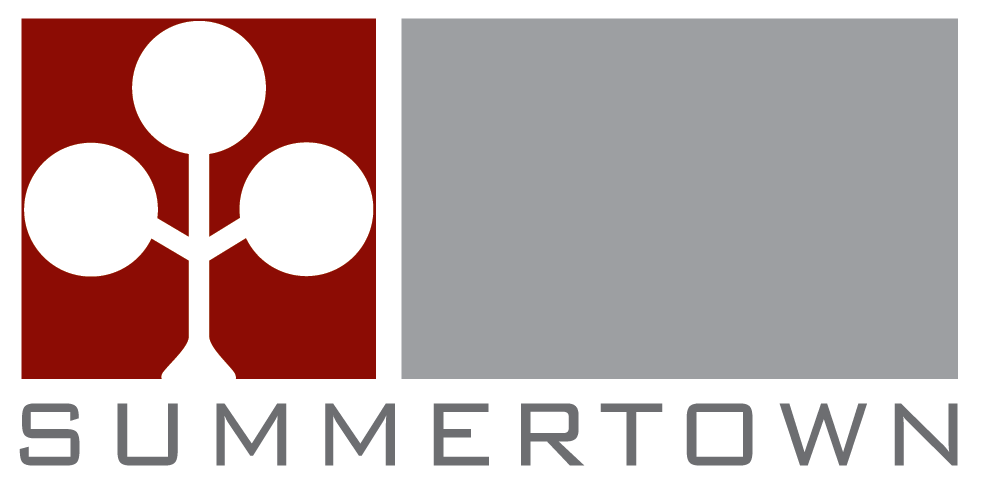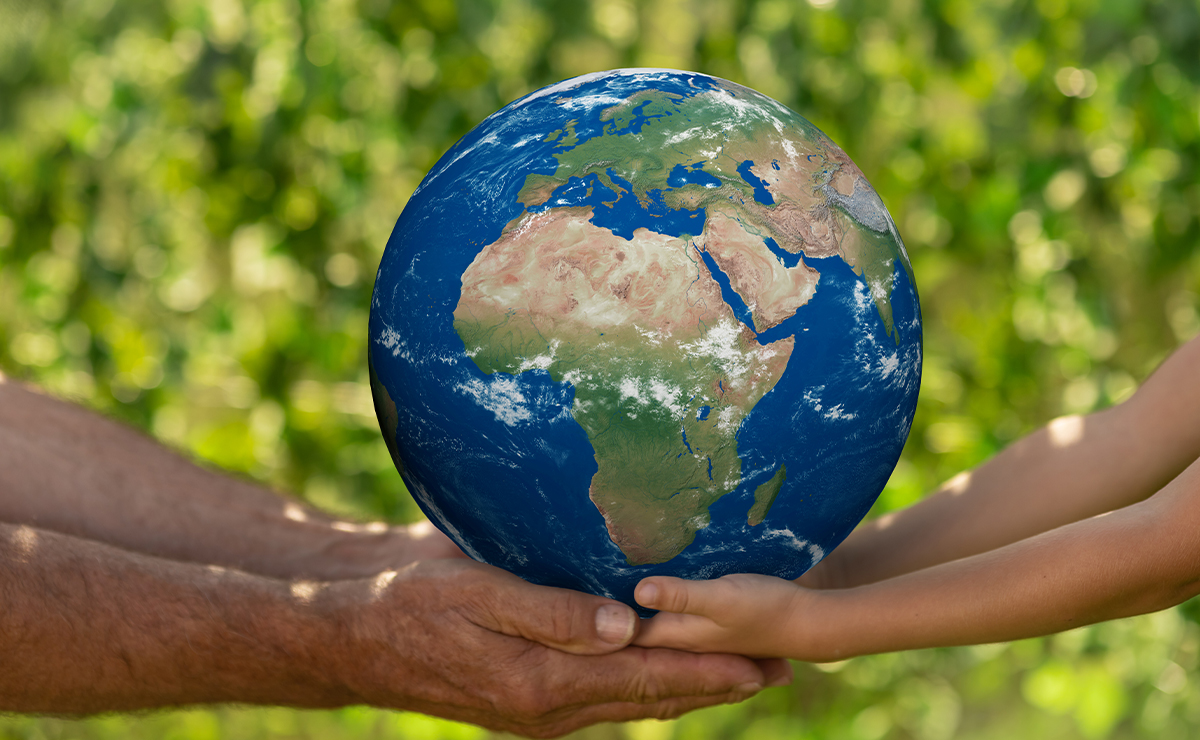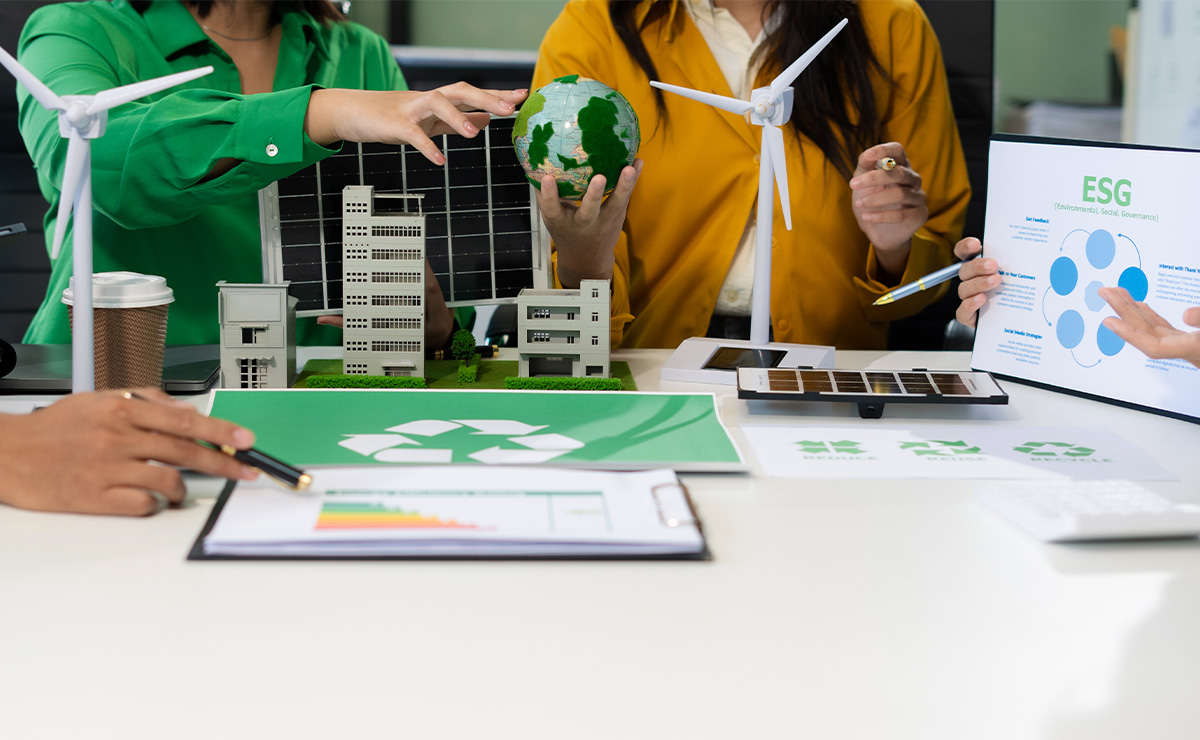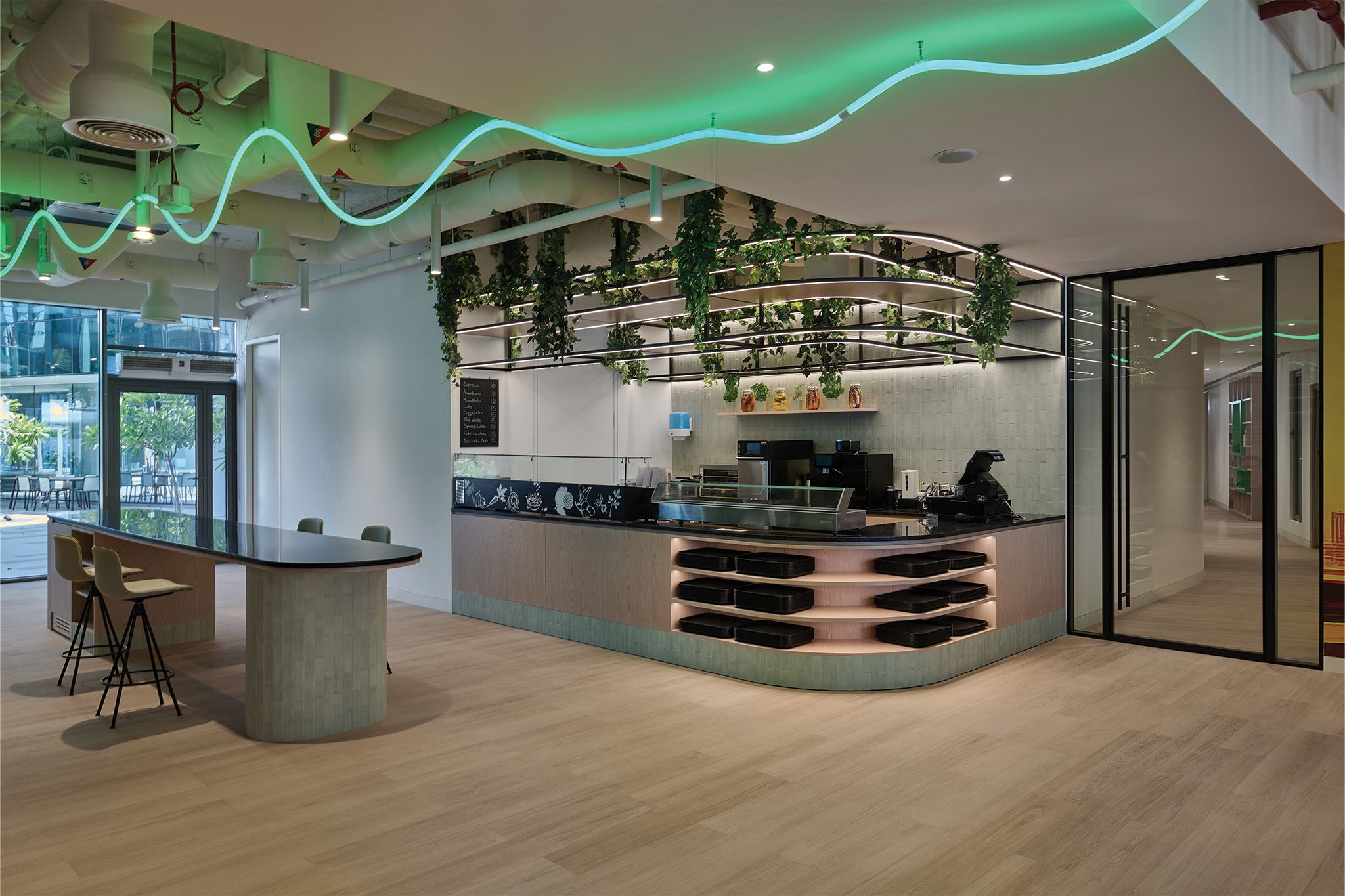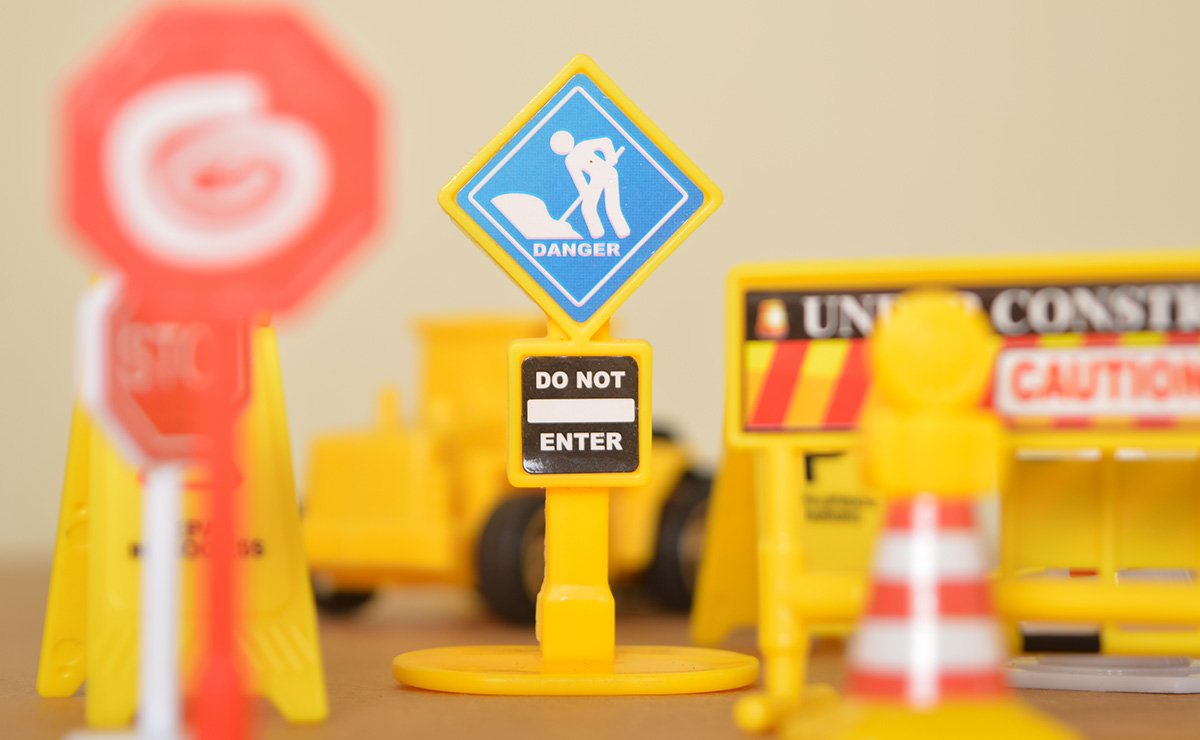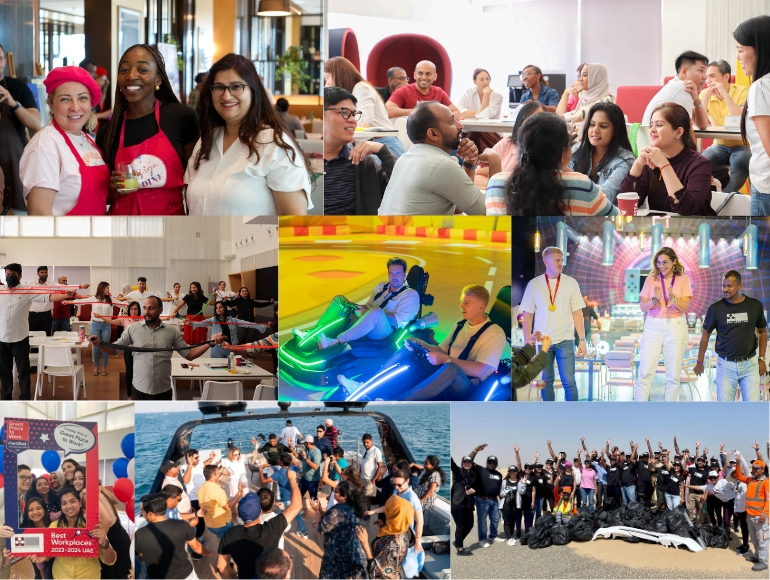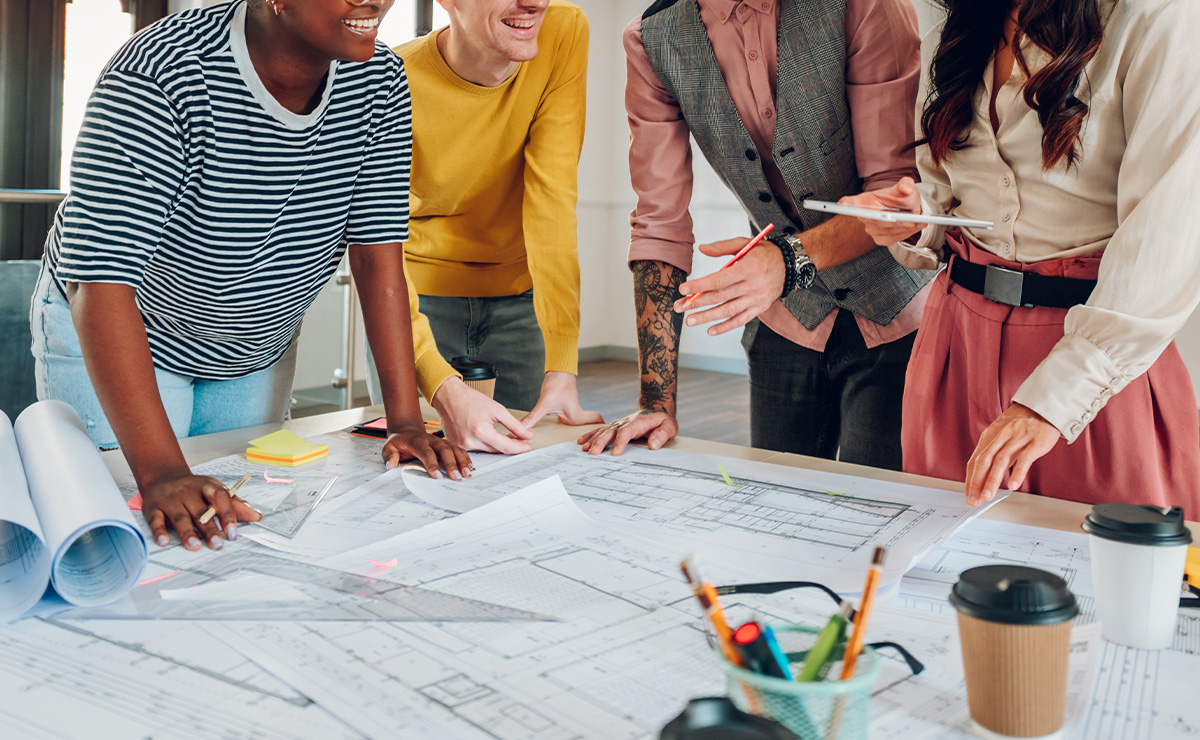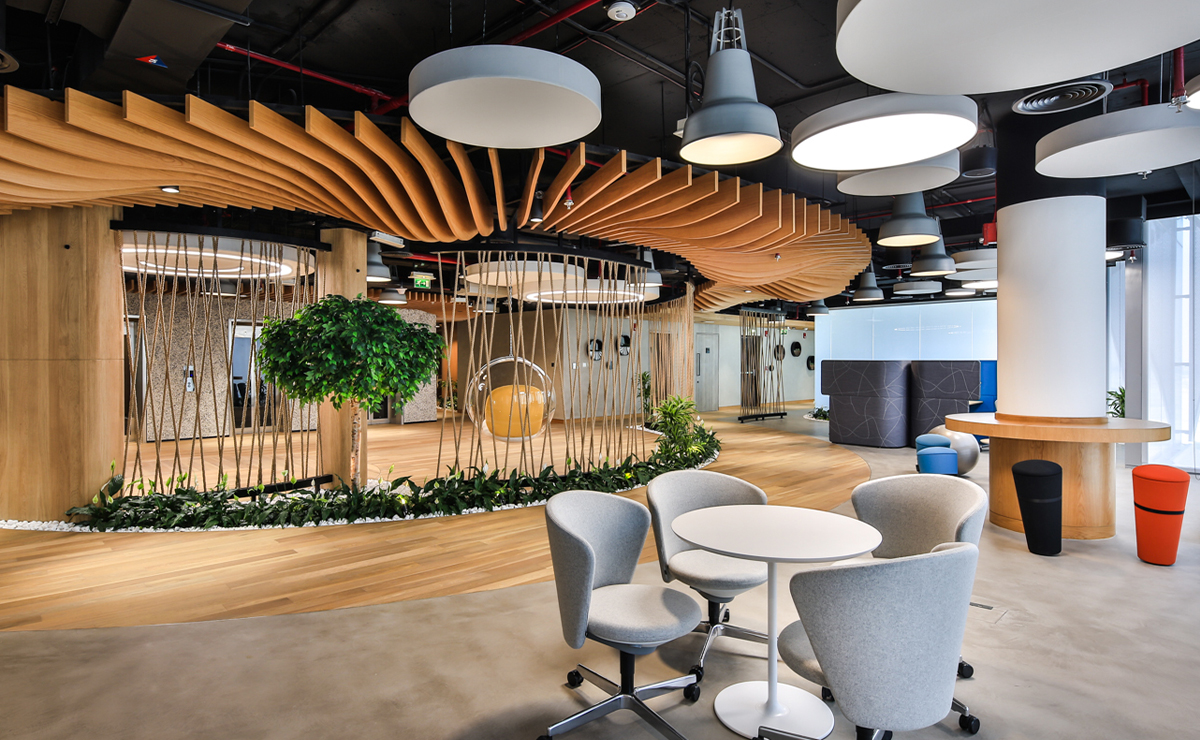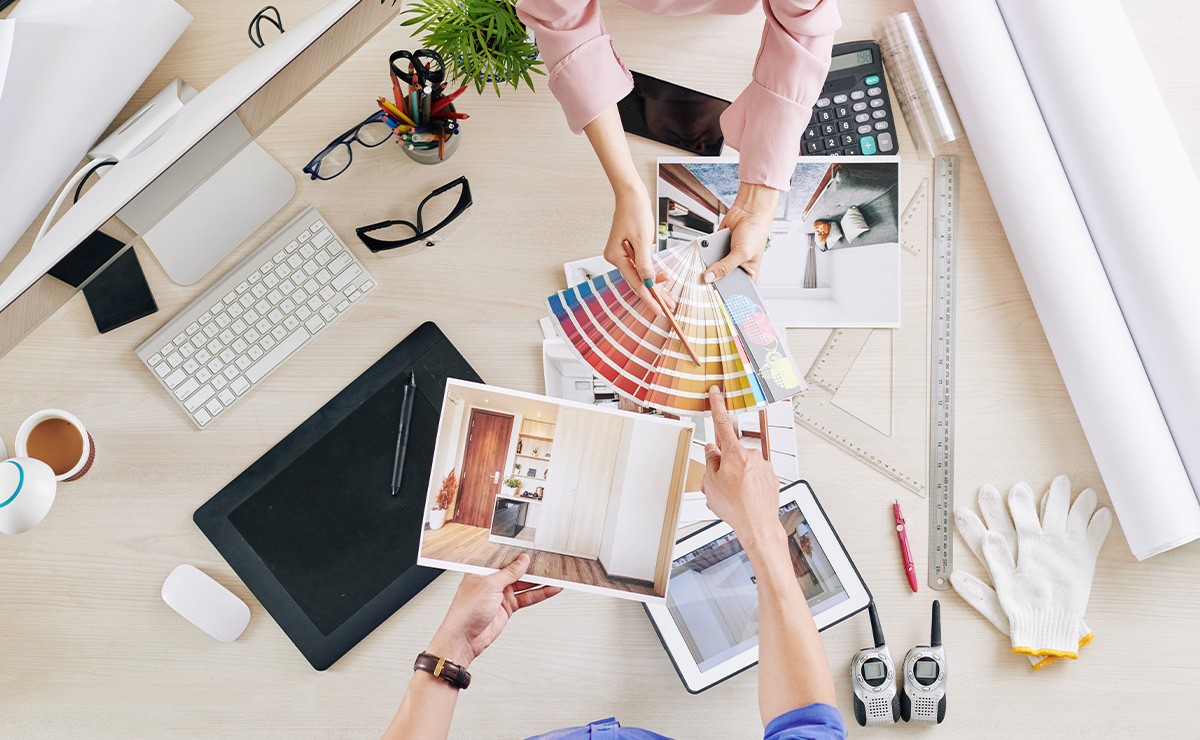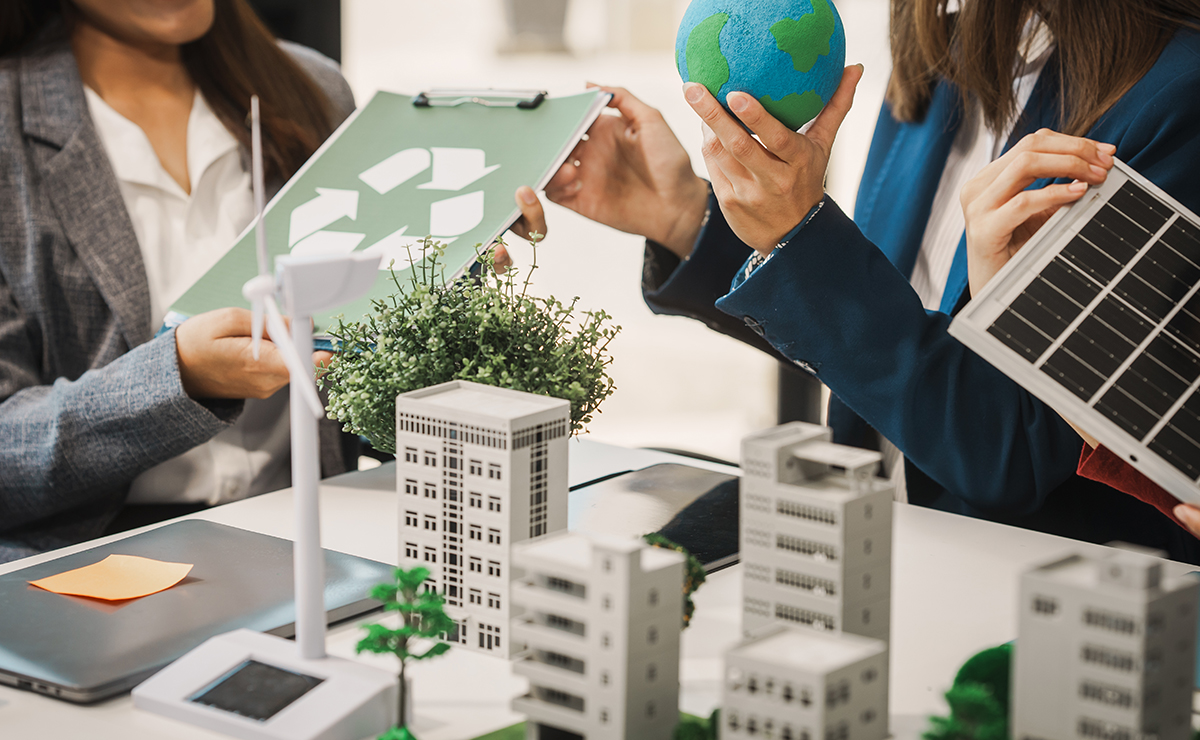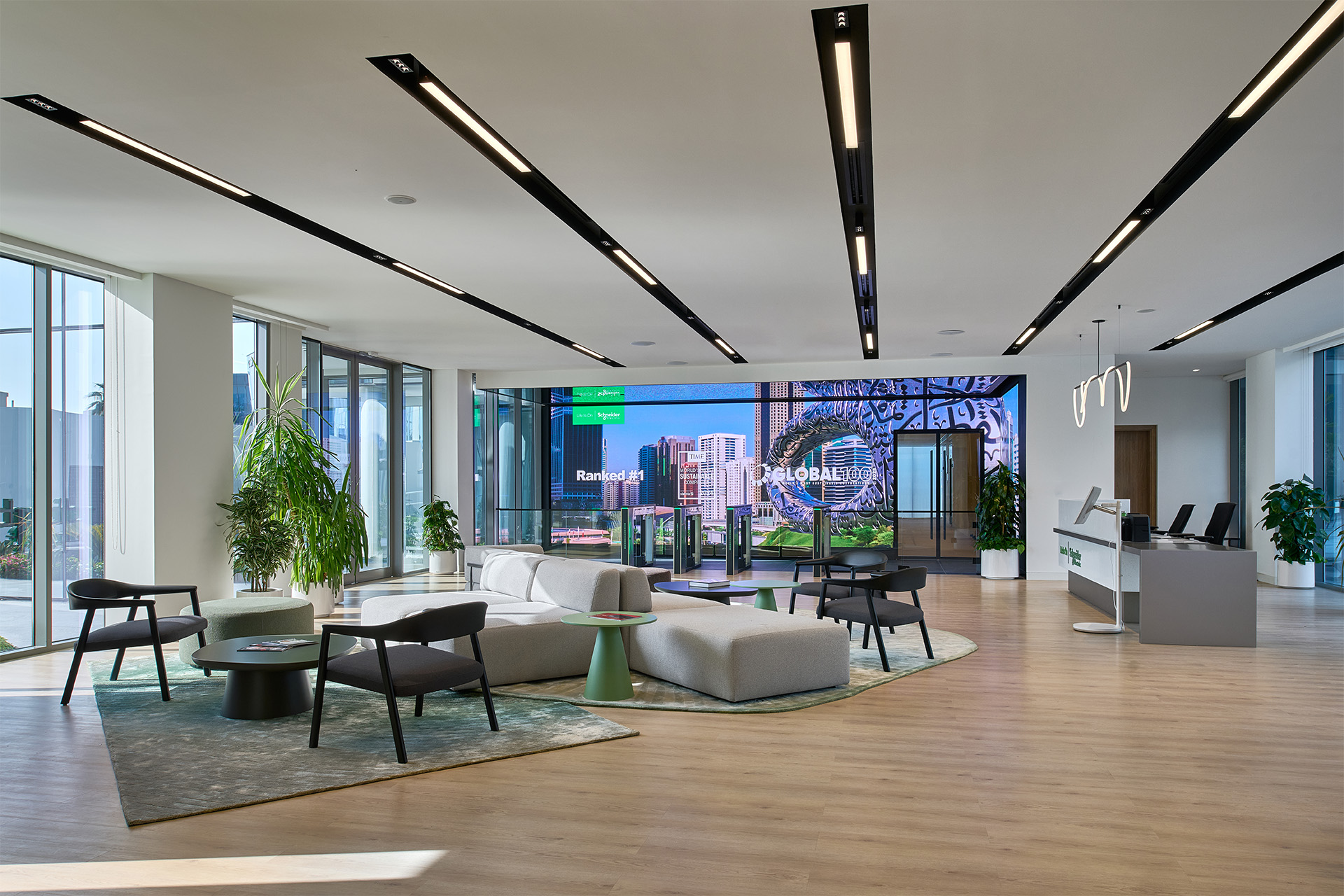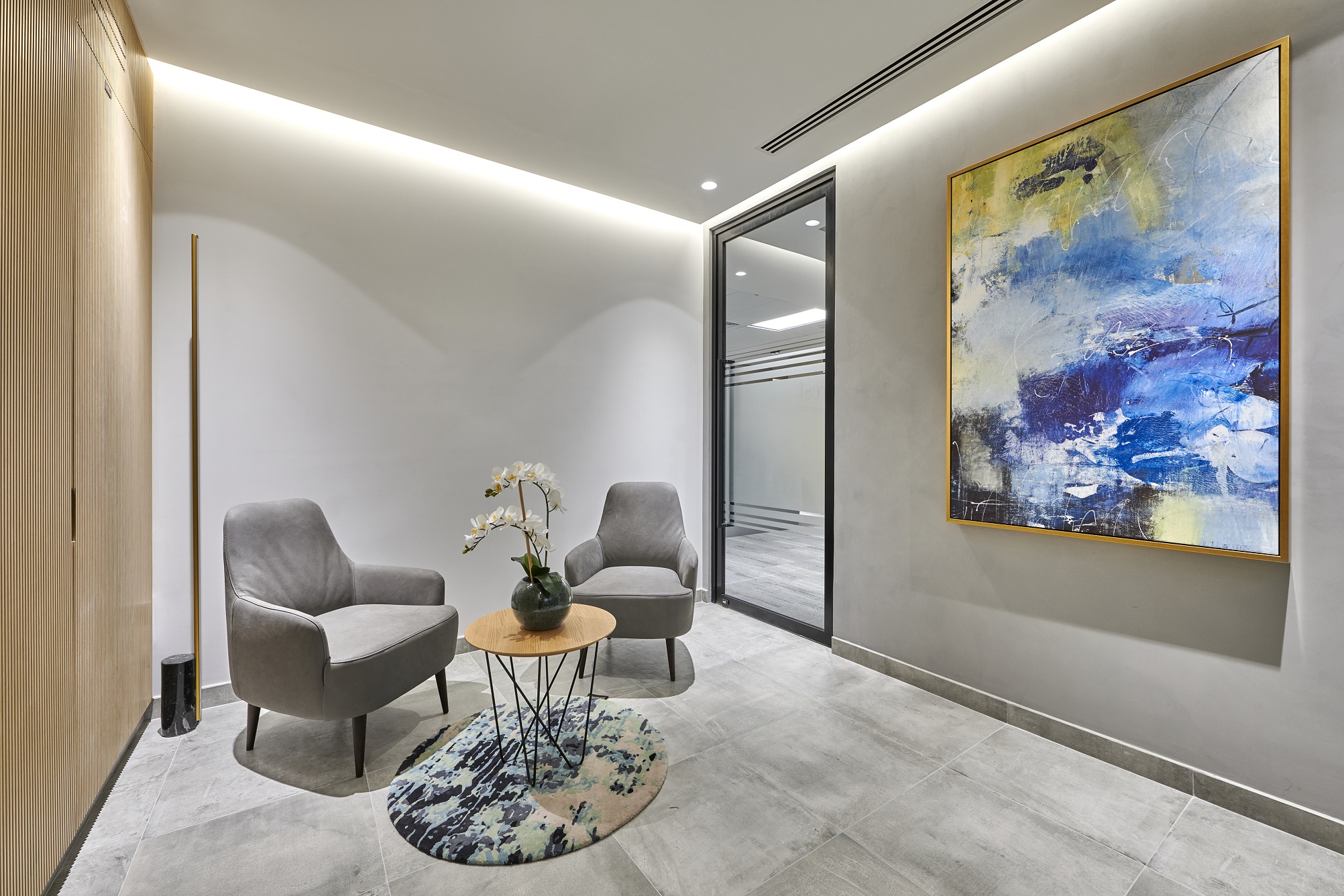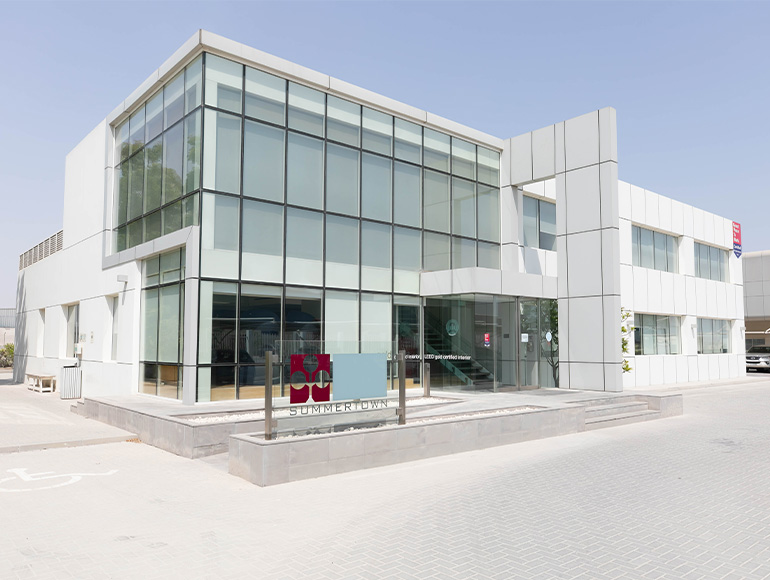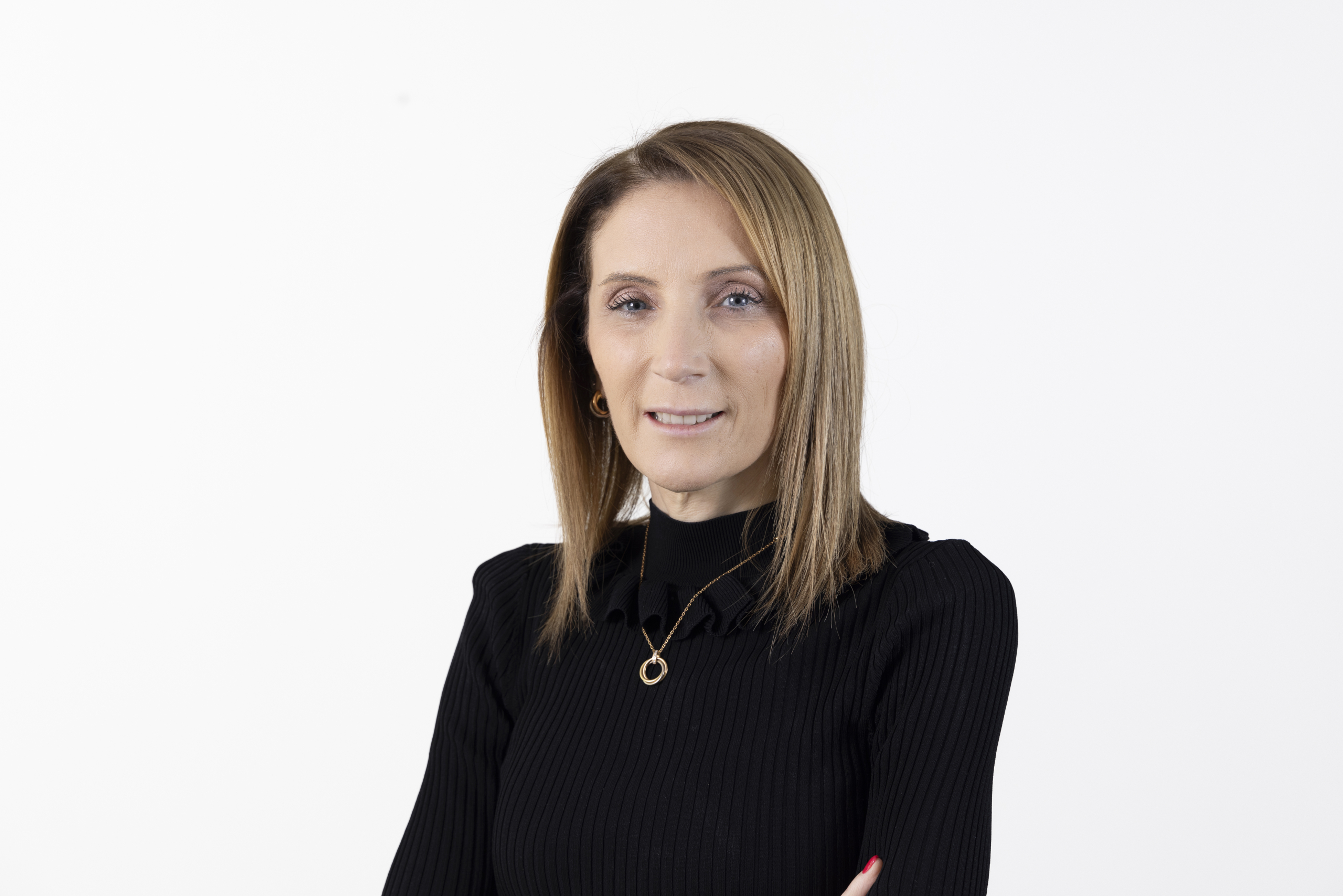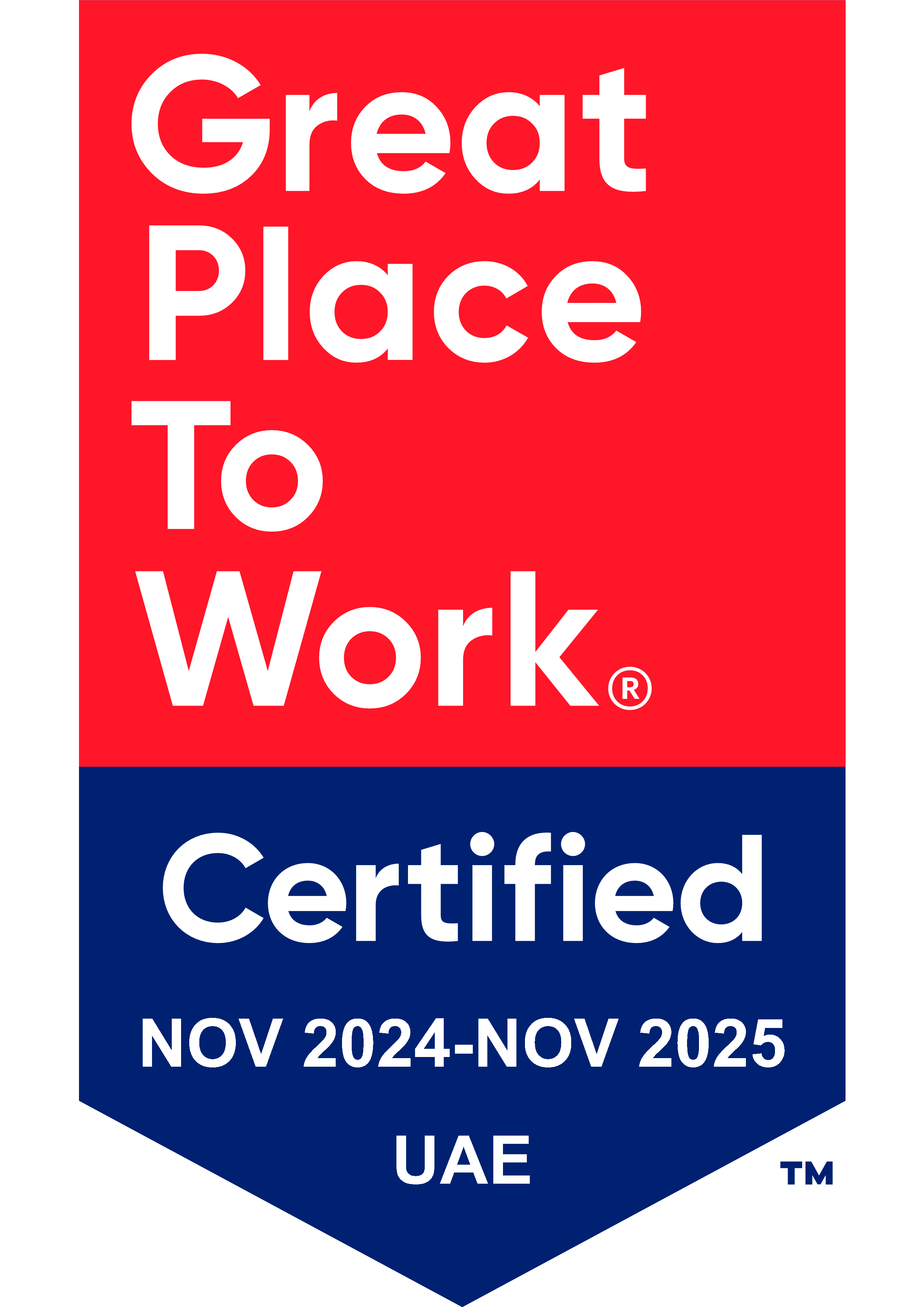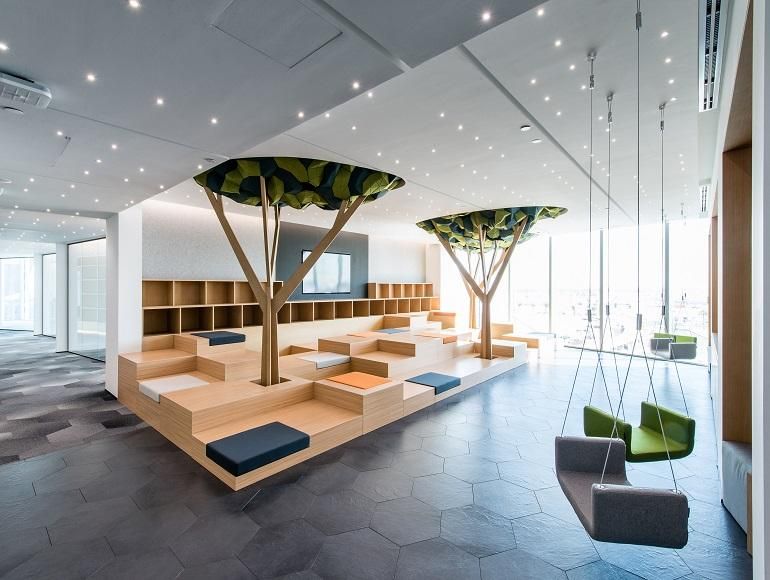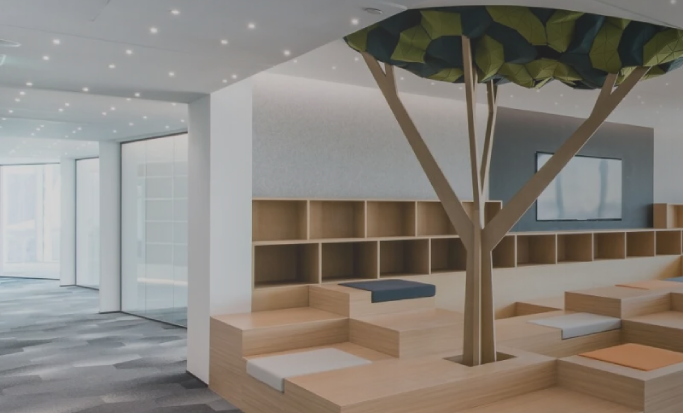
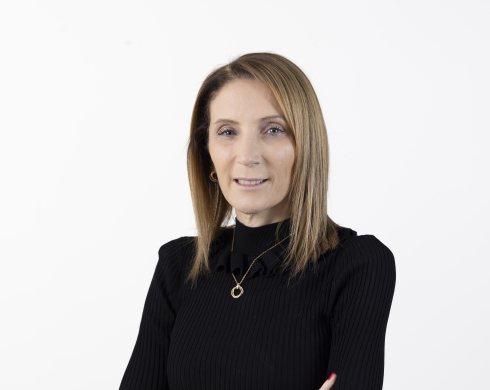
Nicola Trivett
General Manager & Sustainability Leader
Sustainability is now the baseline for every UAE office fit-out. This guide compares LEED, WELL, Estidama and Al Sa’fat, breaks down costs, savings and payback, and explains how Summertown Interiors helps clients meet tough ESG targets without inflating budgets.
Why Sustainable Fit-Outs Matter in 2025
As someone deeply immersed in Dubai’s dynamic business landscape, I’ve seen firsthand how the conversation around office fit-outs has shifted dramatically. It is no longer merely about aesthetics or functionality; it is about a profound commitment to sustainability.
For us, at Summertown Interiors, this movement isn’t simply a passing trend but a fundamental strategic imperative for businesses operating in the region. The drive towards sustainable office fit-out solutions in Dubai is deeply intertwined with a global push for environmental, social, and governance (ESG) accountability, influencing corporate decisions at every level.
Organisations, particularly multinational corporations and government entities, are increasingly aligning their operations with global frameworks such as the UN Sustainable Development Goals (SDGs) and national visions like the UAE Net Zero 2050 and Dubai 2040 Urban Plan. This means that a sustainable fit-out is not just a ‘nice-to-have’ but a crucial component of a company’s overall strategic positioning and its ability to meet stringent ESG reporting requirements.
At Summertown Interiors, we lead this transformation with over 25 years of expertise, delivering high-performance, sustainable workspaces tailored to today’s business and environmental standards.
Understanding Your Options: Key Sustainable Fit-Out Certifications in Dubai
When we embark on a sustainable office fit-out in the UAE, a clear understanding of the available certification landscape is essential. While the goal of fostering sustainable workplaces is universal, the pathways to achieving it vary significantly. The four primary certifications relevant to commercial fit-outs in the UAE are LEED, WELL, Estidama, and Al Sa’fat, each with distinct focuses and geographical relevance.
LEED: The Global Green Building Standard
LEED, developed by the US Green Building Council, is one of the most widely recognised green building certifications in the world. It assesses energy and water efficiency, material selection, air quality and other environmental factors. Projects are awarded one of four levels: Certified, Silver, Gold or Platinum.
Although there are upfront costs, typically ranging from 20,000 to 60,000 US dollars, these are often recovered over time through reduced energy bills and higher property value.
At Summertown, 21% of our 2024 projects received LEED certification. We also offer complimentary LEED certification support for projects with over 2,000sqm, saving clients up to AED 120,000 in consultancy fees.
WELL: Focused on Health and Wellbeing
WELL is the first building certification that focuses entirely on human health. It measures how design features such as air quality, lighting, nourishment, and comfort affect the people who use the space.
WELL certification can take over a year to complete, depending on the project, but it is a valuable investment in workplace wellbeing, often leading to improved employee satisfaction and productivity.
Estidama: Abu Dhabi’s Own Sustainability Framework
Estidama, which means sustainability in Arabic, is a green building system developed specifically for Abu Dhabi. It considers not only environmental factors, but also cultural and social aspects of development.
All new buildings in the emirate must achieve at least a 1 Pearl rating, with government-funded projects requiring a minimum of 2 Pearls. Estidama ensures sustainability is built into every phase of design and construction from the outset.
Al Sa’fat: Dubai’s Green Building Regulations
Al Sa’fat is Dubai Municipality’s mandatory green building code. It applies to all new buildings and to any major renovations that could affect energy efficiency.
The system includes four rating levels: Bronze, Silver, Gold and Platinum. Bronze is the minimum standard required. While sustainable materials and technologies can increase initial costs, higher ratings deliver substantial savings in energy and water usage. Our team has in-depth experience in helping clients meet these local requirements effectively.
Certification Comparison at a Glance
| Certification | Core Benefit | Geographic Scope | Up Front Cost | Complexity | Typical Return |
|---|---|---|---|---|---|
| LEED | Lower utilities and global branding | Worldwide | Medium to high | High | 3 to 5 year payback |
| WELL | Healthier and happier staff | Worldwide | High | High | 1 to 3 year payback |
| Estidama | Cultural and climate resilience | Abu Dhabi | Medium | Medium | Faster approvals and utility rebates |
| Al Sa’fat | Code compliance and energy cuts | Dubai | Medium | Medium | Immediate permit plus 10 to 35% energy reduction |
Certification Benefits You Can Bank On
- Regulatory confidence Al Sa’fat Bronze is mandatory for every new Dubai project and a Pearl rating is compulsory in Abu Dhabi. Aligning early avoids redesign fees and approval delays.
- Operational savings Certified offices typically use 15% to 35% less energy and up to 25% less water. These savings lower operating costs and stabilise service charge negotiations.
- Talent attraction and retention WELL or LEED interiors with ample daylight, clean air and biophilic features can cut absenteeism by 30% and lift staff satisfaction scores within the first year.
- Investor and client trust A certificate on the wall reassures boards, auditors and global clients that ESG disclosures rest on independently verified data.
- Future proof asset value The Royal Institution of Chartered Surveyors reports that certified spaces achieve rent premiums of 6 to 11% and shorter vacancy periods.
Our own LEED and WELL projects for LinkedIn or DMCC prove that high performance workplaces can still be beautiful, functional and delivered on budget.
Five Budget Questions to Ask Before You Commit
I often tell clients that while sustainable fit-outs involve an initial investment, it is crucial to view this as a strategic decision that yields significant long-term returns. Framing the financial aspect through a series of critical questions can help clarify the path forward.
- What are your landlord’s requirements? Understanding existing building certifications is crucial. If the base building is LEED certified, pursuing LEED for the fit out is simpler. In Dubai and Abu Dhabi, local regulations like Al Sa’fat and Estidama are mandatory and set the minimum sustainability standards for all projects.
- What is your primary sustainability goal? Choose certification based on your core sustainability objectives, whether reducing carbon footprint (LEED) or improving occupant wellbeing (WELL). Higher certification levels cost more upfront but offer greater long term benefits aligned with your goals.
- What is your long term ROI expectation? Sustainable certifications like LEED deliver proven savings on average 18% lower utility costs and higher property value. At Summertown we have seen up to 29% energy use reduction per employee proving these fit outs are smart financial investments.
- What is your timeline and internal capacity? Certification processes add time and complexity for example WELL can take over a year. Assess if your team can manage this or if you need expert support. Our experienced team at Summertown helps ensure on time delivery and eases these challenges.
- Are you leveraging incentives or expert support? Government incentives green loans and bulk procurement can offset costs. Partnering with a fit out company that supports certification can also save money. For example Summertown offers free LEED certification for projects over 2,000 square meters saving up to AED 120,000 in fees making sustainability more affordable and appealing.
Choosing a Fit Out Contractor You Can Trust
- Integrated expertise: LEED APs, WELL APs and Estidama PQPs all on staff.
- Transparent metrics: live dashboards for waste, water and carbon. Summertown diverted fifty 8% of project waste from landfill last year.
- Local know how: smooth navigation through Dubai Municipality and Abu Dhabi approvals.
Case Study LinkedIn MENA Headquarters Achieves LEED and WELL Gold
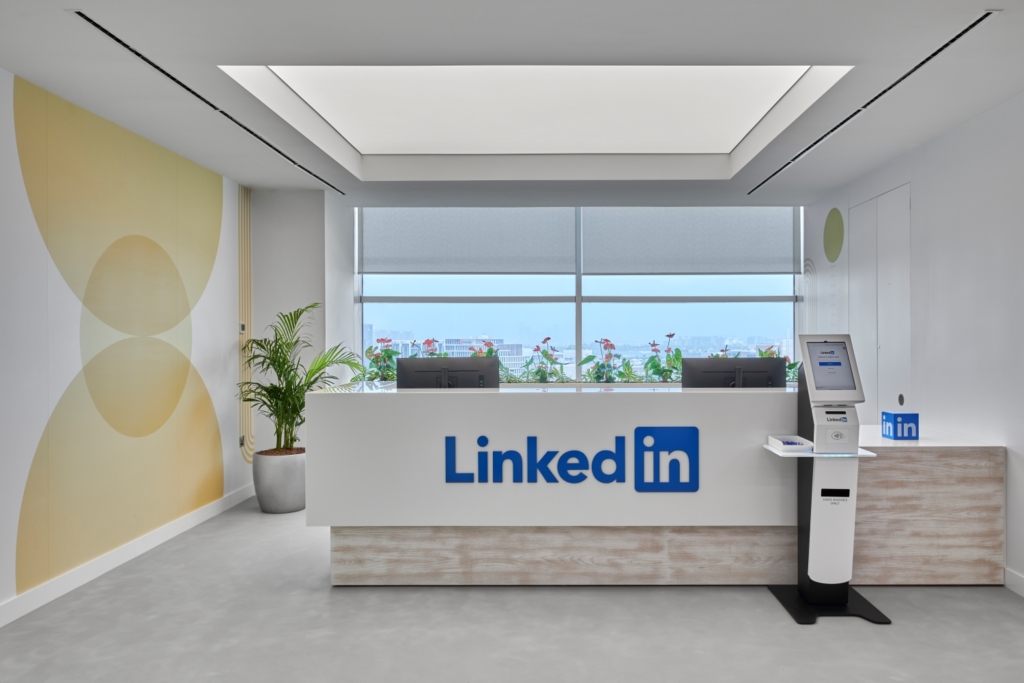
Nothing convinces senior leadership quite like a real‑world example. LinkedIn’s Dubai office demonstrates how dual certification can dovetail with a fast programme and an ambitious hybrid‑working brief, while still delivering measurable returns.
LinkedIn’s regional hub showcases what is possible when bold corporate sustainability targets meet meticulous interior execution.
The 1 600‑square‑metre office is the first in the Middle East and North Africa region to achieve both LEED Interior Design and Construction v4 Gold and WELL v2 Gold in the same fit out. Delivered in just sixteen weeks on site the project proves that efficiency flexibility and world class employee wellbeing can coexist under one roof.
Workplace Highlights
- Flexible collaboration areas with movable walls
- A dedicated media recording suite for LinkedIn Live
- Micro kitchen and café spaces that encourage informal networking
- Mother’s room and faith rooms that support inclusivity
- Biophilic design featuring more than three hundred live plants and a ceiling with lighting that follows the circadian rhythm
“Summertown were excellent from client set up to first day of business. Their team first mindset and commitment to best practice sustainability reporting helped us deliver on a tight timeline with many global stakeholders.” James Fee, EMEA Design and Build Lead, LinkedIn
Partnering for Success: Summertown’s Integrated Model
- Integrated delivery: In house LEED and WELL Accredited Professionals worked closely with SAY Studio, CBRE and Cundall to embed sustainability from concept to handover.
- Matterport three dimensional scans: Weekly scans allowed LinkedIn’s European stakeholders to tour the site virtually which cut flights and carbon emissions.
- Smart materials: FSC certified timber, low VOC finishes and Cradle to Cradle carpets diverted 72% of construction waste from landfill.
Your Next Steps Towards a Greener, Healthier Workspace
I believe the decision of which sustainable office fit-out certification to pursue in Dubai is a critical one, impacting not only environmental performance but also operational efficiency, employee wellbeing, and long-term business value. It requires careful consideration of your organisation’s specific needs, budget, timeline, and overarching strategic vision.
Choosing the right certification is a pivotal step, and from my experience, having an experienced partner can make all the difference.
If you are ready to explore how a certified sustainable office fit-out can transform your workspace and contribute to your broader ESG goals, our experts at Summertown are here to help. We can provide tailored solutions that align with your objectives, ensuring a seamless journey towards a greener, healthier, and more productive work environment. I invite you to explore our LEED-certified case studies and learn more about our unwavering commitment to sustainable fit-outs.
Related posts

Nicola Trivett
General Manager & Sustainability Leader
